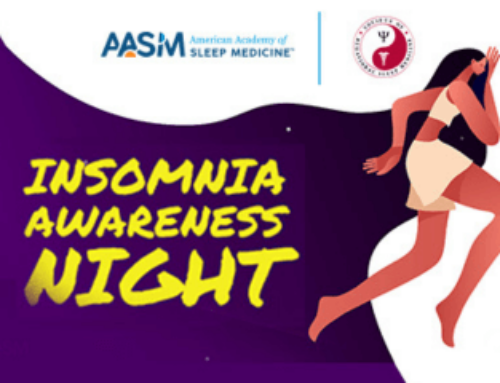EMBARGOED FOR RELEASE: 3:00 p.m. EST, February 14, 2013
CONTACT: Lynn Celmer, 630-737-9700, ext. 9364, lcelmer@aasm.org
DARIEN, IL – A new study confirms a link between insomnia and thoughts of suicide and suggests that this relationship is mediated by dysfunctional beliefs and attitudes about sleep as well as nightmares. The study suggests that the targeted assessment and treatment of specific sleep problems may reduce the risk of suicide in people with depressive symptoms.
“Insomnia and nightmares, which are often confused and go hand-in-hand, are known risk factors for suicide but just how they contribute was unknown,” said Dr. W. Vaughn McCall, the study’s lead author and chair of the Medical College of Georgia Department of Psychiatry and Health Behavior at Georgia Regents University. “This study reaffirms that link and adds the element of hopelessness about sleep that is independent of other types of hopelessness, such as those regarding personal relationships and careers.”
The study, appearing in the February issue of the Journal of Clinical Sleep Medicine, used psychometric testing to objectively assess the mental state of 50 depressed patients being treated as an inpatient, outpatient or in the Emergency Department. Participants were between 20 and 84 years of age, and 72 percent were women. Fifty-six percent of study subjects previously had attempted suicide at least one time.
Results show that participants had a moderate degree of insomnia symptoms on average, using the Insomnia Severity Index. Although hopelessness was related to suicidal ideation, it was not significantly related to insomnia, dysfunctional beliefs or nightmares. However, all three sleep variables were correlated with suicidal thoughts.
Mediation analysis found that when insomnia and suicidal thinking were considered in isolation, insomnia was, as expected, a predictor of suicidal thinking. However, when disturbing dream and nightmare severity, as well as dysfunctional beliefs and attitude severity were included in the statistical model, then insomnia per se was no longer related to suicidal thinking.
“It turns out insomnia can lead to a very specific type of hopelessness, and hopelessness by itself is a powerful predictor of suicide,” McCall said. “It’s fascinating because what it tells you is we have discovered a new predictor for suicidal thinking.”
According to the authors, the study suggests that nightmares and dysfunctional beliefs and attitudes about sleep may present novel targets for suicide prevention.
To request a copy of the study, “Nightmares and Dysfunctional Beliefs about Sleep Mediate the Effect of Insomnia Symptoms on Suicidal Ideation” or to arrange an interview with an AASM spokesperson, please contact Communications Coordinator Lynn Celmer at 630-737-9700, ext. 9364, or lcelmer@aasm.org.
The peer-reviewed Journal of Clinical Sleep Medicine is published monthly and is the official publication of the American Academy of Sleep Medicine, a professional membership society that is the leader in setting standards and promoting excellence in sleep medicine health care, education and research (www.aasm.org).
The American Academy of Sleep Medicine considers sleep disorders an illness that has reached epidemic proportions. Board-certified sleep medicine physicians in an AASM-accredited sleep center provide effective treatment. AASM encourages patients to talk to their doctors about sleep problems or visit www.sleepeducation.com for a searchable directory of sleep centers.




